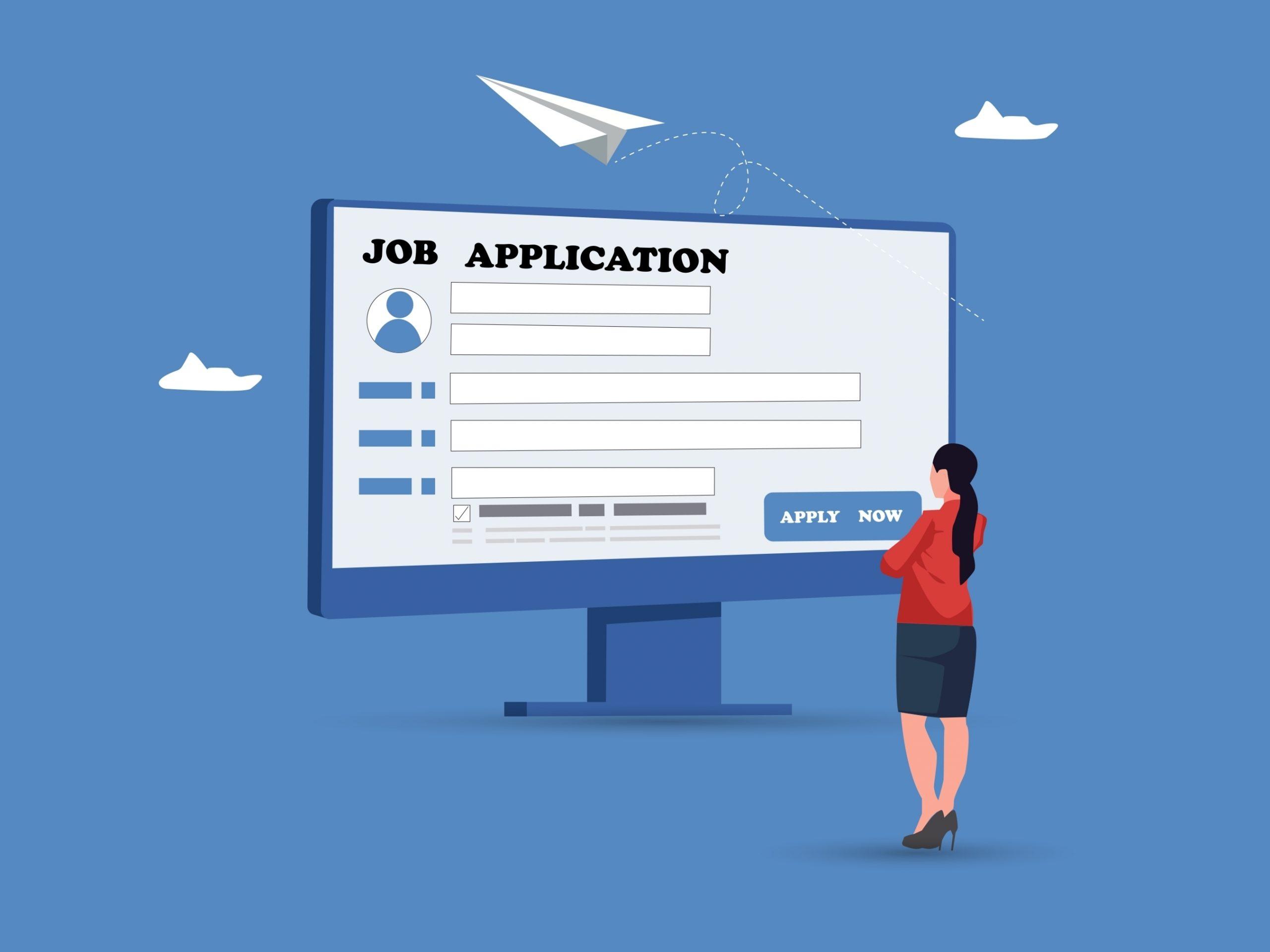How to Write a Resume for Older Workers
Leverage your extensive experience and diverse skill set to make a standout resume as a senior-age job seeker. Keep reading for certified-expert resume writing tips and professional resume templates for older adults.
While today’s job market may feel uncertain, there’s good news for older workers. Workers aged 75 and older are the fastest-growing age group in the workforce, according to the Pew Research Center—meaning employers will expect and prepare to hire older employees.
That’s encouraging for senior job seekers who may worry about age bias or outdated skills. With the right preparation and a strong, modern resume you can compete with confidence in today’s workforce.
This guide will show you how to make a great resume as an older worker plus offer tools to help you navigate this career stage feeling empowered.
How to Overcome Common Struggles as an Older Worker
Older workers face unique challenges when it comes to landing a job. Although a great resume is key to getting your foot in the door, you should be aware of these common struggles so you can overcome them as you navigate through the job search.
- Outdated resume format
Many senior job seekers still use resume trends that may have been popular decades ago, but are now considered faux pas. These outdated resume formatting practices might include lengthy paragraphs, overloaded skills section or listing every job they’ve ever held.
Tip: Stick to one of the three recruiter-approved resume formats to organize your resume sections the way employers expect you too. As an experienced older worker, your strengths will shine through with a chronological resume.
- Red flags that reveal your age
Certain resume details can unintentionally signal your age to employers, such as:
- Including graduation dates from more than 20 years ago
- Listing obsolete technologies or skills
- Using dated email addresses (like AOL or Hotmail)
Tip: Remove unnecessary dates, focus on current skills, and create a professional email address (e.g., yourname@gmail.com).
- Applicant Tracking Systems (ATS)
Most companies use applicant tracking software to scan resumes before a human ever sees them. Older resume formats often don’t perform well in these systems, which can prevent your application from ever reaching a recruiter.
Tip: Make your resume ATS-friendly by using simple fonts, a one-column layout and minimal designs. Want to verify if your resume can bypass the ATS? Upload your document to our free ATS Resume Checker!
Top Resume Tips for Older Workers
Don’t know how to write a resume at 60 years old? Although the job market has changed, your skills and experience are still relevant. Let’s make sure your resume is up to par with the current standards by following these expert tips.
Focus on the last 10 to 15 years.
You don’t need to include every single job you’ve ever held in your life. If you’ve been in the workforce for over 20 years, focus your resume’s work experience section in the last 10 to 15 years. Doing so will allow you to share your most recent and relevant accomplishments, giving potential employers a more accurate picture of what you can bring to the table.
Remove graduation dates.
This is another good tip that prevents recruiters from guessing your age based on your college graduation date. Avoid potential hiring bias and remove all dates from your resume’s education section. Hiring managers don’t need to know when you graduated; they care more about your current capabilities.
Highlight transferable and technical skills.
Older workers tend to have a long career history that’s enabled them with a wide range of skills apt for all sorts of jobs and industries. These skills that apply to multiple careers are called transferable skills; for instance, communication, leadership, organization, problem solving, and many more.
Pairing those more universal skills with your most up to date knowledge of modern tools and software will make you a highly-coveted candidate. Some technical skills you might consider including in your resume for seniors are: Zoom, Slack, Excel, Google Workspace, and CRM systems.
Pro Tip
Use strong, active language.
Today’s hiring managers receive dozens of resumes, if not more, for one single job posting. Therefore, your resume’s language needs to be as clear and concise as possible. If your content is full of statements that start with “I am” or you have big chunks of text, you might want to give your resume a quick update.
Make your resume’s content more streamlined by beginning your statements with action verbs that immediately signal what you accomplished. You can also leave out what we call “filler words” in the resume industry, for example, “I,” “my,” “an”, “a,” “the,” etc. Although it might read strange at first, this is a common and accepted resume practice.
Use a modern resume template.
A great way to show you have a fresh and relevant perspective is to showcase your style with a modern resume template. Clean lines, strategic pops of color, and streamlined layouts convey a job seeker that’s aware of industry trends and open to learn new things—key qualities any employer would want in a candidate of any age.
These tips will help you showcase your professional strengths and downplay what may look like a weakness but is not. However, you can find more in-depth guidance on how to format each and every one of your resume sections in our How to Write a Resume guide.
Senior Resume Template
Looking for a resume for seniors that highlights your experience while staying modern and age-friendly? Start with this professionally designed senior citizen resume sample.
For more options tailored to your needs, explore our full collection of resume templates ideal for older adults to find the perfect fit for your job search.
Job Search Tips for Older Workers
- Tackle advantage of online job search tools.
Most of the hiring that happens today is through websites with online job boards like Indeed, LinkedIn, Glassdoor, and Flexjobs, to name a few. These job boards usually let you create a detailed profile where you can even upload your resume, so if a recruiter is browsing candidates and they happen upon your account, they can immediately take a glance at your qualifications. - Update your LinkedIn profile.
Along the same lines of using online job boards, you’ve got to create a LinkedIn profile if you don’t have one and update it if you do. LinkedIn is a great networking tool where you can connect with past employers and colleagues that can point you in the right direction for job opportunities. You can even request tailored recommendations from people in your network that can vouch for your skills and work ethic, further signaling to employers you’re a valuable candidate. - Practice for job interviews.
One element of the job search process that’s crucial for older workers is interview preparation, since it’s your chance to show you're confident and capable. Be ready to address questions about career gaps, long tenure at previous jobs, or your familiarity with new technologies. Practice framing your experience as an asset. Emphasize your adaptability and continued eagerness to learn.
It’s also helpful to prepare examples that demonstrate your results and leadership. Consider doing mock interviews with a friend, career coach, or even recording yourself to fine-tune your responses and body language. - Consider contract, remote, or part time work.
As an older worker, it’s totally understandable to want or need a slower pace when it comes to work. Consider contract or part time work and look for remote work opportunities that offer flexibility as well as fair compensation and benefits, and a great workplace environment!
Although all generations face their own challenges when it comes to employment, one thing the younger generation has fought for to have is strong work-life balance. A job should help you fulfill your goals and dreams in life; and a job should never come at the expense of your well-being.
Use these tips to your advantage and explore more resources on our blog to take control of your job search and land the role you deserve.
How to Age-Proof Your Resume
Use this checklist to make sure your senior resume presents your experience as a strength without revealing your age unnecessarily:
- Focus on the last 10-15 years of experience. Limit the resume’s work history section to your most recent and relevant roles.
- Leave off graduation dates. Avoid listing dates from degrees or certifications earned more than 15-20 years ago.
- Use a modern, ATS-friendly format. Choose clean fonts, clear headings, and simple layouts that pass automated resume screenings.
- Include current tech and digital skills. Mention tools like Microsoft 365, Zoom, Slack, or any relevant industry software.
- Update your contact info. Use a professional email address (e.g., Gmail) and include a link to your LinkedIn profile.
- Showcase results, not just duties. Use bullet points with measurable achievements (e.g., “Reduced costs by 15% over two years”).
- Highlight adaptability and continuous learning. Mention recent certifications, training, or relevant online courses.
- Remove early-career roles that aren’t relevant. Summarize older roles in a short “Additional Experience” section, if needed.
- Tailor each resume to the job posting. Match your skills and experience to the keywords and requirements in each job description.
Pro Tip
Frequently Asked Questions
Do older workers still need to write a cover letter?
Yes, if you’re an older worker you should definitely write a cover letter if the job requires it, especially if you're changing industries, or returning to the workforce. A well-written cover letter lets you explain your career goals, highlight your transferable skills, and proactively address any concerns about age or career gaps.
How can I explain a career break or early retirement on my resume or cover letter?
Be honest but brief. Use your cover letter to frame the break positively, for example, mention if you went through personal growth, were taking care of someone, traveling, or retraining your skills. Then, pivot to why you're ready and motivated to re-enter the workforce now.
Should I include volunteer work or consulting on my resume?
Absolutely. If you've done relevant unpaid or freelance work during a gap, include it. Volunteer work on a resume for older workers shows continued engagement, initiative, and that you possess applicable skills.
How do I write a resume if I’m switching careers later in life?
Focus on transferable skills and professional strengths rather than how many job titles you’ve held. Use a combination resume format and frame your past experience in terms of how it applies to your new career direction.















